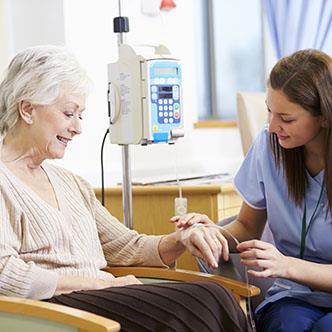
Statins are widely used by millions of Americans to help lower cholesterol, prevent heart attacks, and deaths. It seems that for women with early stage breast cancer, these medicines may play a role in helping to protect the heart from damage caused by certain chemotherapy drugs and targeted cancer medicine, according to research presented during the American College of Cardiology’s Annual Scientific Session Together with World Congress of Cardiology.
Chemotherapies that use anthracycline, as well as trastuzumab (Herceptin), are often used to treat breast cancers. Experts estimate that 1 out of 4 women with early stage breast cancer will receive anthracycline or trastuzumab. But these same lifesaving treatments are also known to damage the heart and, in some cases, can trigger heart failure—a serious condition that affects the heart’s ability to pump enough blood to meet the body’s needs. In some women, such declines in heart function can occur within months of starting cancer therapy, which speaks to the importance of finding ways to guard against treatment-related heart damage.
“To date, there has been limited evidence supporting the safety and effectiveness of large-scale use of cardioprotective medications for patients with early stage breast cancer. Angiotensin antagonists and beta blockers have only shown modest cardioprotective effects in clinical trials, and these medicines are sometimes poorly tolerated in this population given their side effects of fatigue and dizziness, which many patients already have from their cancer therapies or the cancer itself,” said David Bobrowski, medical student at the University of Toronto and the study’s lead author. “Our results suggest that taking statins is associated with a significantly lower risk of developing heart failure requiring hospital-based care among women with early stage breast cancer who received one of these cancer therapies.”
In fact, women on statins and either of these cancer treatments had a much lower risk of developing heart failure—58% lower for anthracyclines and 66% lower for trastuzumab—than those on the same treatments with no statin over a median five years of follow-up.
This study analyzed the medical records of 2,545 women who were treated with anthracycline and 1,345 treated with trastuzumab for early stage breast cancer between 2007 and 2017 in Ontario, Canada. Of these, 953 anthracycline-treated women and 568 trastuzumab-treated women were taking statins. Statin use was decided based on whether women were prescribed a statin within a year of starting their cancer treatment, but researchers did know whether the women actually took the statin.
Unlike most of the previous studies that focused on declines in the amount of blood pumped out of the heart (left ventricle function) as an indicator of heart failure, this team looked at “clinically overt heart failure,” defined as a woman presenting to the emergency department or being admitted to the hospital with heart failure. The risk of heart failure-related hospital visits was much lower among those who were also prescribed statins.
“The findings provide impetus for future prospective trials to determine whether initiating a statin before receiving anthracycline-based chemotherapy or trastuzumab can effectively prevent cardiotoxic events,” Bobrowski said.
Breast cancer is the most common cancer in American women, aside from skin cancers. It’s estimated that 1 out of 8 women will develop breast cancer at some point during their lifetime.
“While death rates have been declining, largely due to earlier detection and improving [cancer] treatments, we now know many women will later develop heart disease,” Bobrowski said. “Cardiovascular disease is the leading cause of death among older early stage breast cancer survivors.”
There is often an overlap of risk factors between cancer and cardiovascular disease, including diabetes and obesity, so many of these patients may also benefit from statin therapy based on current guidelines to lower heart disease risks.